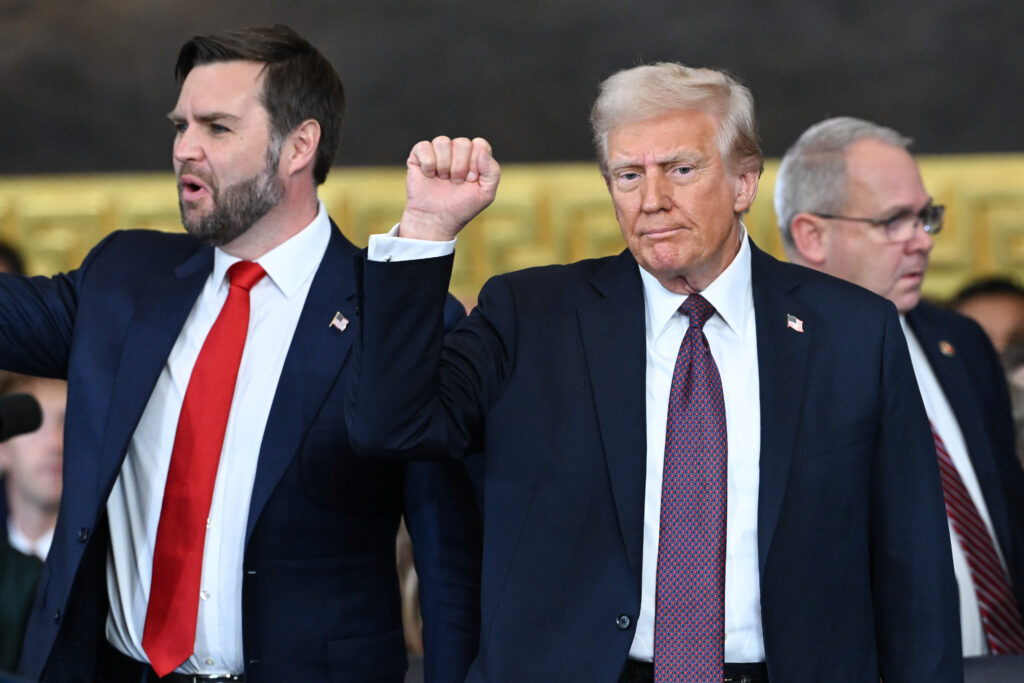President Donald Trump on Monday announced the United States would withdraw from the Paris climate accord for a second time, a defiant rejection of global efforts to combat planetary warming as catastrophic weather events intensify worldwide.The Republican leader also declared a “national energy emergency” to expand drilling in the world’s top oil and gas producer and said he would scrap vehicle emissions standards that amount to an “electric vehicle mandate.” He also vowed to curb wind farms, a frequent target of his scorn.Trump’s White House announced the decision to leave the Paris agreement in a statement shortly after he was sworn into office, but did not specify the timing.Under the agreement’s rules, exiting would take a year after submitting formal notice to the United Nations.Even before a formal exit, critics warn the move undermines international cooperation on fossil fuel reduction and could embolden major polluters like China and India to weaken their own commitments.Argentina under libertarian maverick President Javier Milei — who attended Trump’s inauguration — has also indicated it is “re-evaluating” its participation. It comes as global average temperatures over the past two years surpassed the critical 1.5 degrees Celsius warming threshold for the first time, underscoring the urgency of climate action. Trump also withdrew the United States from the Paris Accord in June 2017.However, the deal — adopted in 2015 by 195 parties — appears poised to endure. “The US withdrawing from the Paris Agreement is unfortunate, but multilateral climate action has proven resilient and is stronger than any single country’s politics and policies,” said Laurence Tubiana, a key architect of the accord.UN climate chief Simon Steill said the “door remains open” for the US, while Secretary-General Antonio Guterres said he remained confident that “cities, states and businesses within the United States” along with other countries would work towards decarbonization.- More drilling, fewer EVs -Trump used his inauguration speech to preview a raft of sweeping energy-related federal orders aimed at undoing Biden’s climate legacy.”The inflation crisis was caused by massive overspending and escalating energy prices, and that is why today I will also declare a national energy emergency. We will ‘Drill, baby, drill!'” Trump said.”With my actions today, we will end the Green New Deal, and we will revoke the electric vehicle mandate, saving our auto industry.”Trump’s reference to the “Green New Deal” likely alludes to the Inflation Reduction Act — his predecessor Joe Biden’s signature climate law that channels billions into clean energy tax credits.Environmentalists note that Biden’s climate record is also clouded by the aggressive expansion of fossil fuel leasing under his administration. Last year, US greenhouse gas emissions fell just 0.2 percent, leaving the nation far from its climate goals even before Trump’s return to office.Trump’s domestic actions were welcomed by energy industry leaders, who view the administration’s policies as a return to the era of “American energy dominance.” “The US oil and natural gas industry stands ready to work with the new administration to deliver the commonsense energy solutions Americans voted for,” said Mike Sommers, president and CEO of the American Petroleum Institute. – Emissions reductions to slow -But they sparked immediate outrage from environmental advocates.”This declaration is more proof that Trump doesn’t seem to recognize the real world,” said Athan Manuel, director of the Sierra Club’s land protection program, in comments to AFP. “The US is producing more energy, more oil and gas than any country has ever produced.”Analysis by the Rhodium Group and Carbon Brief predict that Trump’s policies will significantly slow the pace of greenhouse gas emissions reductions, but experts remain optimistic that emissions will continue to trend downwards over the long term.Trump’s actions come despite overwhelming scientific consensus linking fossil fuel combustion to rising global temperatures and increasingly severe climate disasters.Last year, the US endured a barrage of catastrophic hurricanes, including Hurricane Helene, the second-deadliest storm to hit the mainland in over 50 years. More recently, wildfires intensified by climate change have devastated Los Angeles, leaving a trail of destruction.
Tue, 21 Jan 2025 00:47:01 GMT
